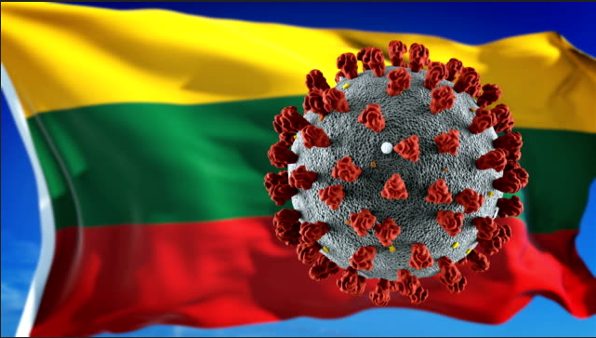Covid 19 and Children Mental Health in Lithuania – Notes of a Child / Adolescent Psychiatrist
By Sigita Lesinskiene, Head of Clinic of Psychiatry, Institute of Clinical Medicine, Faculty of Medicine, Vilnius University, Lithuania

Introduction.
Lithuania is a small but beautiful country in central-eastern Europe, close to the Baltic sea, with a beautiful nature, but the most archaic language and painful history for centuries. On a positive note, 30 years ago, Lithuania was the first country that bravely initiated and fought to successfully get out from the Soviet Union. Our society is still recovering from soviet occupation, sometimes quite easy, occasionally stuck, occasionally mysterious.To note, Child mental health services, paediatrics, and child and adolescent psychiatry services have long traditions, international cooperation and generally comprise a biopsychosocial paradigm that is still in the process of the implementation to clinical practice.
Virus shake
COVID-19 pandemic was totally new and unexpected to all countries and societies worldwide. Now quarantine in Lithuania has ended on June 16th, and people agree that all phases and processes have gone successfully. Regardless of the political debates, people in Lithuania have mobilised, actively followed epidemiological and hygiene recommendations, and self-isolation rules that have helped to manage the crisis. We are now starting to think more about the processes and impact of the pandemic on various sectors. I would like to share with my colleagues some preliminary thoughts from the perspective of child / adolescent psychiatrist.
Some positive notes:
- In media and social networks, there was a significant interest on how to relax, meditate, stay positive, how to build good family relationships by spending much more time in the home environment, and how to work and organise learning for children from home. People were sharing recipes, suggestions, opinions and demonstrated empathy to each others situation. A number of volunteering initiatives have organised many opportunities to get not only respirators and medical equipment, but also to get psychological help. Recognition of the importance of mental health has increased.
- In Lithuania, this current year (2020) was announced as the children´s emotional well-being year.
- There were many debates on how the medical field is working. Generally, a higher respect to doctors and a better understanding of their very demanding and risky work has been noticed.
- During the quarantine, primary mental health centres have organised their clinical work to provide remote services. This situation revealed the need of a new legislation, regulation and a better administration of online service provisions. The Ministry of Health is familiar with evidence-based data on remote service development, online and social networking interventions, mobile health monitoring applications, and is now planning to develop this field.
Some negative notes:
- Gradually people became tired of the anxious, unstable, uncertain and dangerous situation with so many restrictions, the economic problems, and the isolation and fear to contaminate others. People are scared to become seriously ill and die. People are afraid to infect older people in their families (e.g., parents, grandparents), and to visit them. There is a huge demand to adapt and change according to the challenging situation. Increasing rates of domestic violence have been registered.
- Criminal statistics have also increased. Painful discussions about emigrants in a very little country have been activated again.
- Children and adolescents are spending more time with computers and mobile devices. The risk of inappropriate and dangerous activities, including internet games with lots of cruelty and violence have increased, together with the threat to become addicted to the internet and networks.
- Not all the parents have enough time and competencies to regulate the internet use of their children and to implement preventative strategies. Other parents underestimate the dangers of internet use.
Suggestions:
- To organise international training seminars for mental health practitioners, in order to increase their understanding about the impact of internet use on mental health. This field is developing rapidly, and clinicians have to update their knowledge.
- More research in this area is also very needed.
Personal sharing:
I have started my clinical work providing outpatient consultations after the quarantine started in the middle of May. Many families were talking about difficulties to regulate and plan internet use for their children. One day I met two boys that, in the context of getting angry and frustrated, they texted their mothers “die, die, die!” (many lines repeating the word, using the same style and design).
When I saw the screenshot from the mother of the second boy, I immediately considered the possibility of a specific video game (e.g., Fortnite) impacting on these two boys. I noticed the worrying effect of inappropriate intensive games on these children´s mental health; their tendency to wipe away important ethical boundaries, and to disrupt their self-regulatory skills. Both mothers confirmed that their sons were playing internet games very intensively, although these mothers didn‘t know much about the details or nature of these games. Both were totally shocked by getting so many “Die” written down by their sons. It was challenging to construct a therapeutic intervention without knowing the nature of the game and its specific features. But we succeeded at least to agree on the necessity of self-regulation of the content of internet use, and to play and incorporate other day activities outside internet use, including more physical and self-expression activities. Summarising, children mental health and internet use is a topic that deserves further investigation and exploration.

